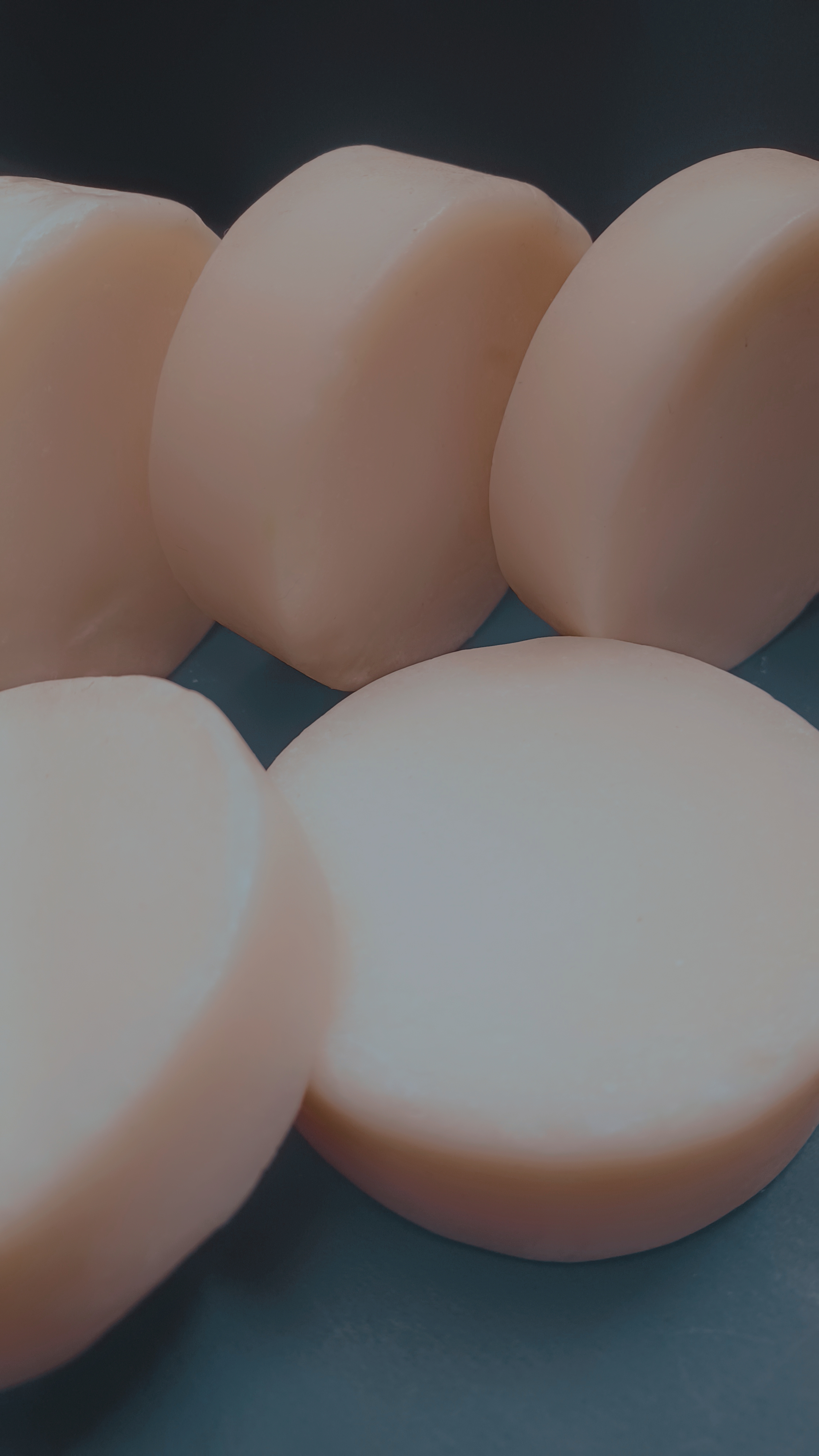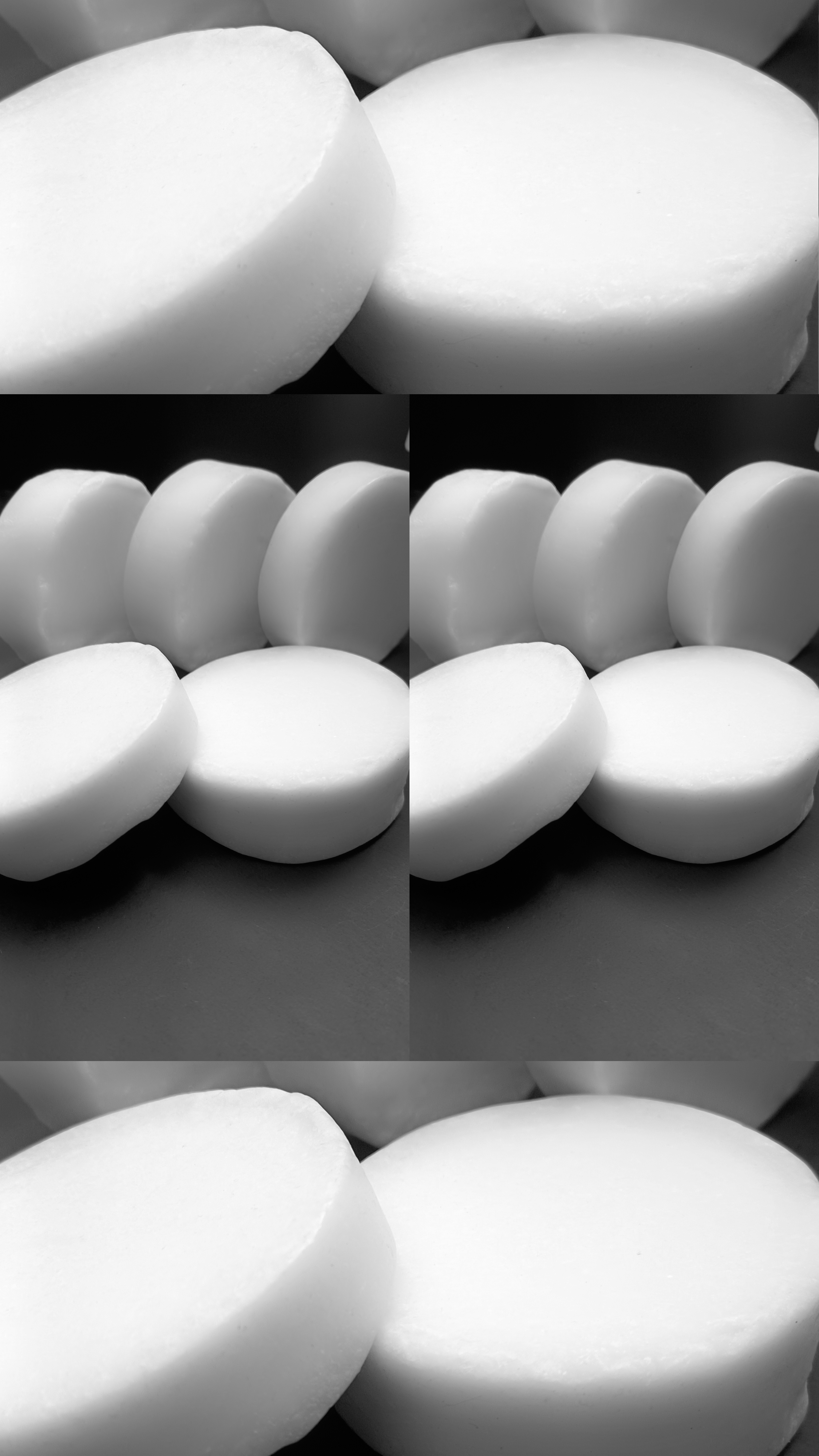What are the benefits of using a baking soda soap?

Sodium bi-carbonate alone is useful for deodorizing refrigerators, garbage cans and washing machines. Making a baking soda soap is an even better choice for everyday cleaning purposes. Whether you are in the kitchen, laundry room or bathroom, a baking soda soap is very useful and here's why.
Baking soda is a natural deodorant. While showering, the sodium bicarbonate in the soap will slightly alkalize the pH of your skin reducing the environment for bacteria to grow. Bacteria grows readily in a more acidic environment causing strong body odors as you sweat.
Have you ever had itchy skin? It could be from a number of causes including bug bites from mosquitoes, horseflies or fleas. It's possible that you may have walked past poison oak, sumac or ivy. Either way you may find that your skin is itchy. Baking soda soap can help to reduce the itchiness on the skin. Most of these encounters happen in the summertime. What about skin conditions that can occur any time of the year such as psoriasis or eczema? Baking soda soap may help to exfoliate and relieve some of the symptoms of these conditions.

Here is another great use for a baking soda soap. Have you ever purchased fruits and vegetables that have a wax coating or a pesticide residue on them? I'm thinking of apples, lettuce and kale to name a few.
Well, you can help to remove these residues by washing the vegetables with your baking soda soap. Lather up the soap in your hands then wash your fruits and vegetables with the soap and lather. For stubborn pesticide & wax residue repeat the washing procedure several times.
Where does baking soda come from?
Several common names for baking soda are bi-carbonate of soda or sodium bicarbonate. These are the chemical compound names for baking soda. The formula for baking soda is NaHCO3. Baking soda comes from the mineral nahcolite. It is interesting to note that according to Britannica.com "The name nahcolite is derived from the chemical formula NaHCO3 by dropping the subscript numeral 3 at the end and substituting the letters lite in it's place." This is how the mineral name "nahcolite" came into being.
Nahcolite is mined extensively in northwest Colorado. There are large naturally occurring mineral deposits of nahcolite in this area. Here is an archived video that showcases nahcolite from it's raw mining extraction start to it's finished final product. Nahcolite is refined through strict purification standards to certify and grade sodium bicarbonate for business and industrial use.
In the neighboring state of Wyoming, baking soda is extracted and refined from trona ore. This is another way that sodium bicarbonate is produced. Trona ore is mined on a massive scale just outside of Rock Springs Wyoming in the Green River Basin. Trona's chemical name is a mouthful, it's trisodium hydrogendicarbonate dihydrate. Without getting too technical, in general terms there is a patented formula for extracting sodium bi-carbonate from trona ore. This process is completed on a large scale at the trona mines in Wyoming where they produce the largest amounts of sodium bicarbonate in the USA.
There are other locations throughout the world that mine and produce even larger quantities of sodium bicarbonate. Some of these locations are in Europe, Africa and Mexico.
Will my baking soda soap be affected by this so-called aluminum in baking soda?
Lets debunk this aluminum in baking soda myth once and for all. Every once in a while you will still hear someone tell you that there is aluminum in baking soda! It was never true. The rumor started a few years ago with a certain brand of baking powder, Not baking soda.
This never had anything to do with baking soda. The only connection was that the baking powder in question at the time, had ingredients that included: baking soda, corn starch, phosphate and aluminum. The company in question had removed the aluminum ingredient nearly a decade ago! The ingredient in the baking powder was an aluminum based acid used for leavening bread. The commotion has blown over as that particular brand of baking powder has since removed the questionable ingredient used for baking and leavening bread.
Baking soda has never contained aluminum. Baking soda contains only 100% sodium bicarbonate as it's single ingredient. Your baking soda soap will not be affected by aluminum. Breathe easy and know that sodium bicarbonate is the only ingredient in baking soda.
Why does baking soda soap feel so slippery?
Does your baking soda soap feel more slippery than usual? Does it take longer to rinse it off your hands? This is a normal phenomenon! Most soaps are alkaline to some degree and have a pH starting at about 8.0 and can be as high as 10.0 on the pH scale. Baking soda has a pH value of about 8.4 to 9.0 on the pH scale which makes it more alkaline. Water (H20) is neutral with a pH of 7. Keeping this in mind, the oils on your skin will hydrolyze when you wash with your baking soda soap and water. The pH of baking soda is higher and that's why your soap feels more slippery than usual. It may take longer to rinse it off which is a common everyday occurrence.